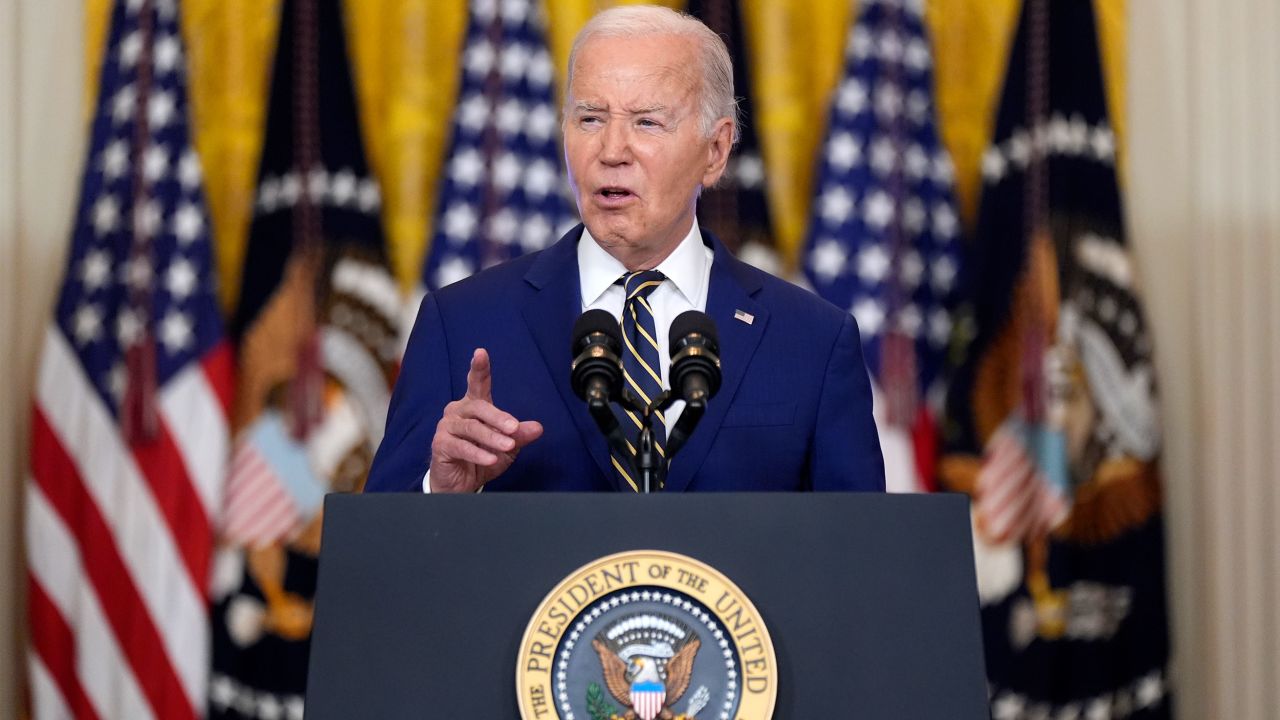President Joe Biden is adopting strategies once used by former President Donald Trump to address the issue of asylum seekers at the US-Mexico border. Biden's newly announced plan, which leverages executive authority, aims to significantly limit the entry of migrants who cross illegally while still providing avenues for legal asylum requests at ports of entry. This approach recalls Trump's controversial immigration policies, which were initially reversed by Biden after taking office. The new measures could politically bolster Biden by narrowing Trump's lead on immigration, but they risk disaffection among progressive supporters.
While Biden's rhetoric starkly contrasts with Trump's, both leaders have relied on the same legal authority from the 1950s to regulate border entry during their presidencies. Trump often portrayed immigrants as a threat, promising strict border control and mass deportations. In contrast, Biden emphasizes the potential contributions of immigrants to American society and advocates for a pathway to citizenship for undocumented individuals already in the country. However, Biden's pivot toward the center on immigration reflects political pragmatism in the face of Congressional inaction on comprehensive immigration reform.
Announced shortly after Mexico's presidential election, Biden's plan underscores cooperation with Mexican authorities. By working with Mexico to manage the flow of asylum seekers within its borders, the Biden administration aims for more humane immigration enforcement, differentiating itself from Trump's more antagonistic approach. Nevertheless, legal challenges loom as the American Civil Liberties Union (ACLU) prepares to contest the new measures, which they argue are unlawful, just as Trump's policies were when he enacted similar restrictions.
Despite ongoing legal and political complexities, there has been a noticeable decrease in border crossings recently. Reports indicate a drop from over 250,000 apprehensions last December to fewer than 140,000 in recent months, with numbers falling further in May. Local officials, however, caution that temporary measures are insufficient. Hidalgo County Judge Richard Cortez, for instance, describes Biden's policy as a 'patch,' emphasizing the need for lasting legislative solutions to address immigration comprehensively.
Delving further into the political landscape, Biden’s strategy appears to be a calculated move in the broader context of the 2024 presidential election. His so-called 'remembrance campaign' focuses on Trump’s controversial actions and statements, including his mishandling of the COVID-19 pandemic and the overturning of Roe v. Wade by Trump-appointed judges. Although not yet official, it's likely that Biden and Trump will once again face off in the upcoming election, with Biden banking on contrasting the current administration's policies with the tumultuous Trump era.
- The Department of Homeland Security has outlined specific changes in how noncitizens will be processed at the border under Biden's new measures. Migrants subject to accelerated expulsion must express credible fear of returning to their country of origin to be interviewed about their asylum claims. Those who do not meet these criteria will be rapidly returned to Mexico or their home countries, highlighting the administration's commitment to enforcing border security while still providing avenues for legal protection.
- Significantly, Biden's renewed emphasis on tightening border security comes amid declining apprehension numbers, signaling potential short-term success. However, Biden emphasized at the White House that true resolution lies in comprehensive immigration reform—a task that remains incumbent on Congress. Judge Richard Cortez's statement underscores the dissatisfaction with temporary fixes and the urgent need for enduring legislative action.
- Amid Biden’s immigration measures, Trump’s legal troubles loom large in the political discourse. The recent conviction of Trump on 34 counts related to hush money payments has not significantly dented his political base. Polls indicate that many Republicans view the verdict as politically motivated, and a considerable segment of GOP voters remains resiliently supportive of Trump.






